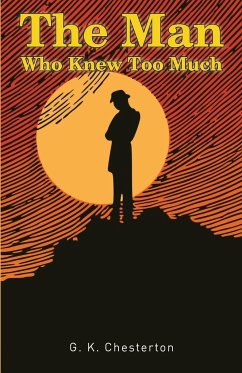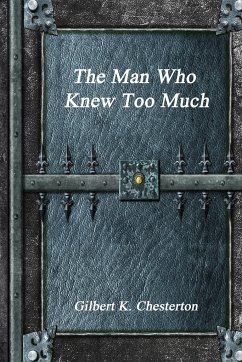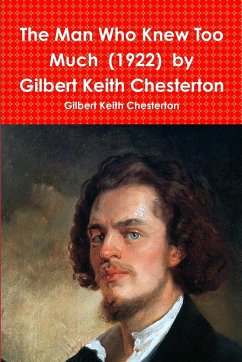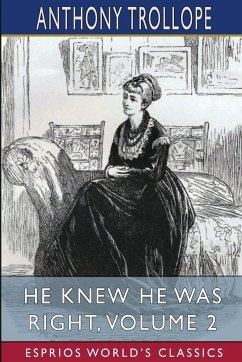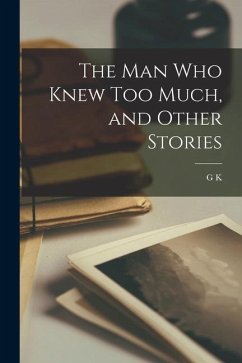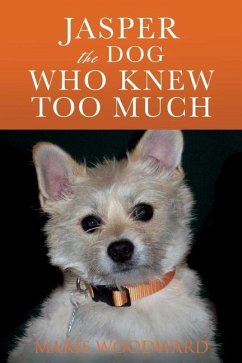Nicht lieferbar
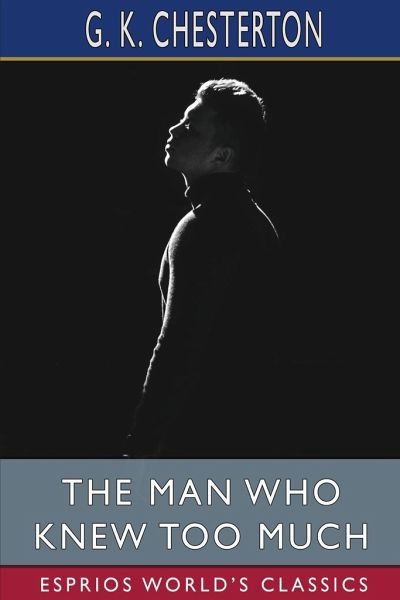
The Man Who Knew Too Much (Esprios Classics)
Versandkostenfrei!
Nicht lieferbar
Weitere Ausgaben:
The Man Who Knew Too Much: And Other Stories (1922) is a book of detective stories by English writer G. K. Chesterton, published in 1922 by Cassell and Company in the United Kingdom, and Harper Brothers in the United States. It contains eight connected short stories about "The Man Who Knew Too Much", and unconnected stories featuring other heroes/detectives. The United States edition contains one of these additional stories: "The Trees of Pride", while the United Kingdom edition contains "Trees of Pride" and three shorter stories: "The Garden of Smoke", "The Five of Swords" and "The Tower of T...
The Man Who Knew Too Much: And Other Stories (1922) is a book of detective stories by English writer G. K. Chesterton, published in 1922 by Cassell and Company in the United Kingdom, and Harper Brothers in the United States. It contains eight connected short stories about "The Man Who Knew Too Much", and unconnected stories featuring other heroes/detectives. The United States edition contains one of these additional stories: "The Trees of Pride", while the United Kingdom edition contains "Trees of Pride" and three shorter stories: "The Garden of Smoke", "The Five of Swords" and "The Tower of Treason". Horne Fisher, "The Man Who Knew Too Much", is the main protagonist of the first eight stories.






